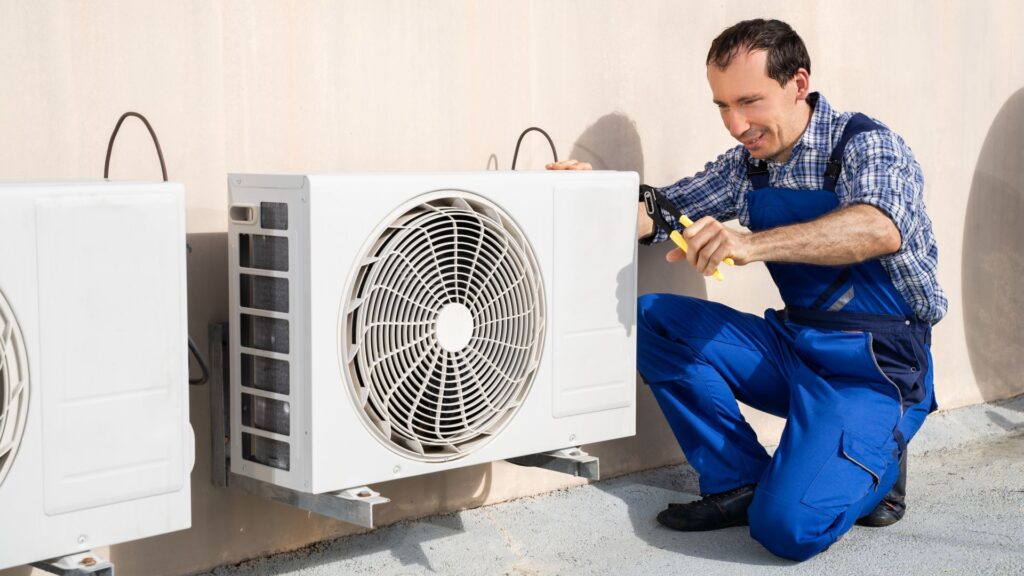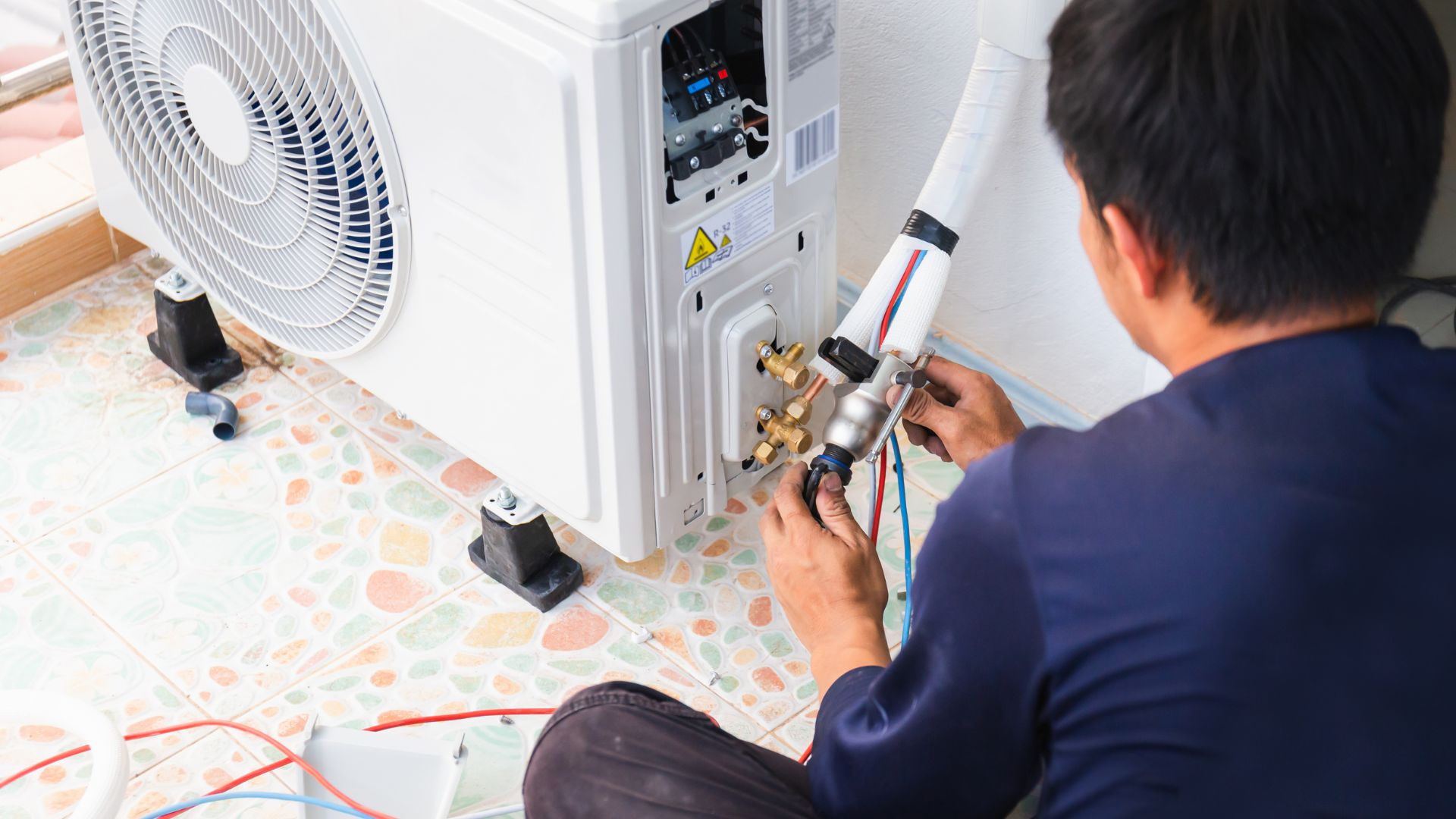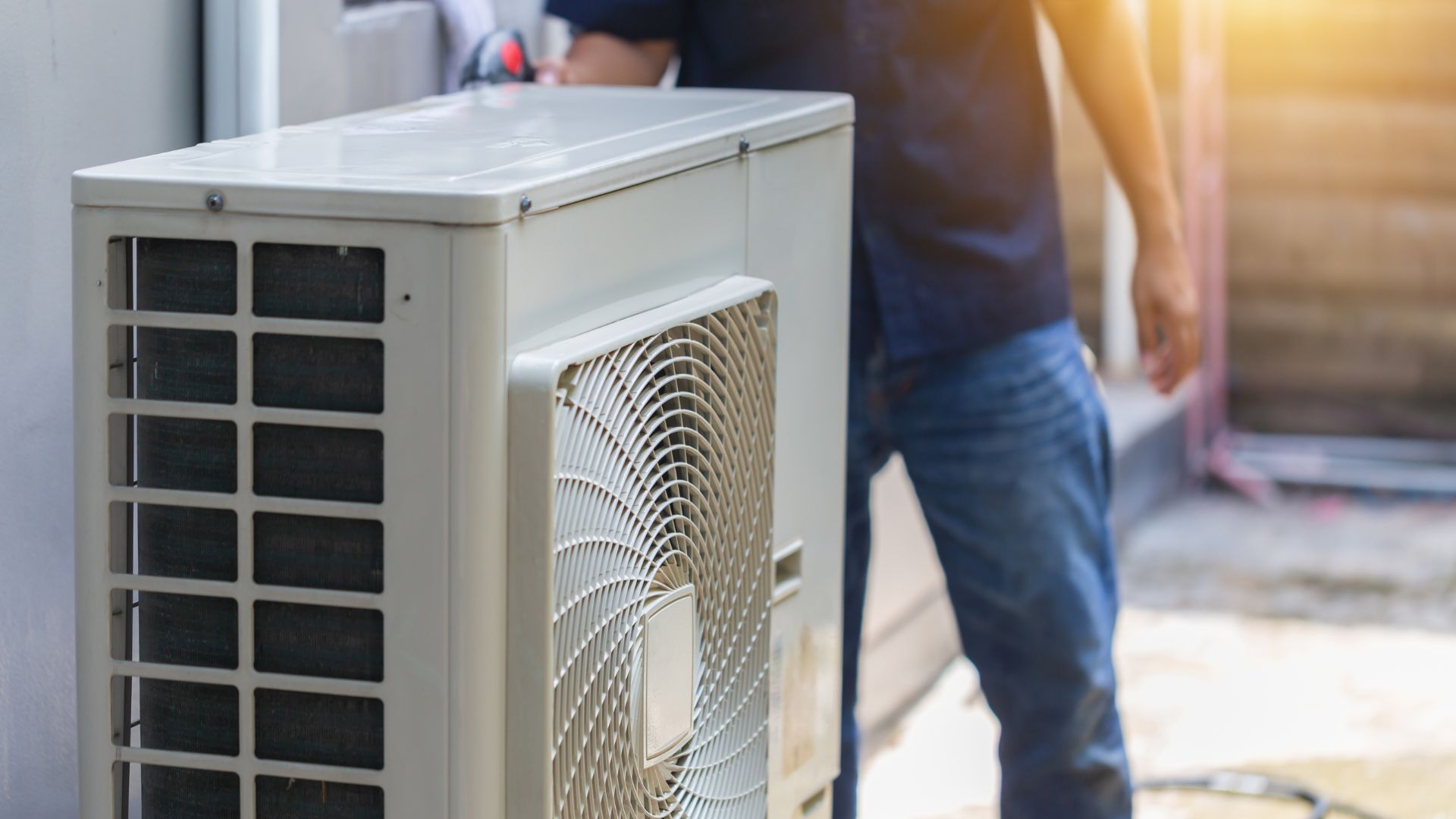With a dependable air conditioning (AC) system, staying indoors during the summer may be easier due to the extreme heat. Your air conditioner must be regularly maintained to work correctly and keep you cool all summer.
Here are ten of the most important things to remember when maintaining your air conditioner this summer. Even though it's not officially summer, the weather feels like it.
As temperatures and humidity rise, people all over the country turn on their air conditioners and pump up the cold air to keep their homes pleasant. Due to constant use, HVAC systems need special attention during summer.
Essential Air Conditioning Maintenance Advice to Keep You Chill All Summer
Recognising The Importance Of Maintaining Your Air Conditioner
There are several reasons why you must schedule regular AC repair. First, it keeps your air conditioner running at its best, saving you money on utility bills without sacrificing comfort.
Second, regular servicing can help your air conditioner last longer, saving you money on repairs and replacements in the long run. Finally, regular maintenance helps maintain indoor air quality by eliminating contaminants like dust, allergies, and pollutants.
Replacing Or Cleaning Air Filters
Air filter cleaning and replacement is one of the most basic yet crucial maintenance activities. Clogged filters impede airflow, reducing the performance of your AC system and putting needless strain on the unit. It is recommended to check the filters monthly and clean or replace them if necessary to maintain optimal airflow and indoor air quality.
Cleaning And Inspecting The Condenser Coils
Your air conditioner's condenser coils dissipate the heat generated by the refrigerant. The efficiency with which these coils transport heat can be diminished over time by debris, dirt, and dust buildup. Maintaining efficient heat transfer necessitates routine inspection and cleaning of the coils using a gentle brush or vacuum cleaner to eliminate buildup.
Clearing And Checking The Condensate Drain Line
Moisture collected from the air by your air conditioner is carried away via the condensate drain pipe. Algae, mould, and other debris can build up in this drain pipe over time, causing water leaks and even system failure.
To avoid problems and ensure that drainage remains unimpeded, the drain line should be inspected regularly, and any obstructions should be removed with bleach and water.
Checking Out The Motor And Fan Blades
The fan and its motor are essential parts of your air conditioner. Keep the blades clean and balanced, and check for cracks or chipping. Reduce friction and prolong the life of your motor by lubricating the bearings regularly. When these parts are well-maintained, airflow is maximised, and the motor isn't overworked.
Blower Belt Maintenance And Checkup
A belt that runs from the motor to the blower wheel controls your air conditioner's airflow. The belt's wear and tear or loosening over time might reduce the system's efficiency and airflow. The blower belt should be checked for wear and replaced if necessary. Keep the belt at the right tension to ensure proper airflow.
Evaporator Coil Maintenance
The evaporator coils within your air conditioner are what do the cooling. These coils lose cooling capacity due to dust and dirt. Regularly use a soft brush or fin comb to remove any buildup from the evaporator coils and restore maximum cooling efficiency.
Adjusting And Checking Thermostat Settings
The thermostat manages your air conditioner's performance and temperature. Maintaining a properly calibrated and tuned thermostat to your comfort needs requires regular inspection. Investing in a programmable thermostat reduces utility expenditures without losing comfort.
Plugging Air Flow Holes In Ducts
If your ducts let in too much air, you should expect increased energy costs and diminished cooling performance. Look for leaks in the ducts and patch them up with metal tape or specialised duct sealant. Air conditioning efficiency and effectiveness are both improved by well-sealed ducts.
Maintenance Appointments With Experts
DIY upkeep is necessary, but getting a professional at least once a year is essential. A professional HVAC technician will use specialised knowledge and equipment to inspect, tune up, and clean your air conditioner. They can spot problems, keep your AC running smoothly, and help it last longer.
How to Maintain Your AC during summer: step by step guide
Stay cool while the temperature outside soars! A broken central air conditioner is the last thing you need on the first truly hot summer day. However, this may be the case if you perform some basic annual maintenance after the warm weather arrives. Residents should service their air conditioners in the spring before the weather gets too hot.
An air handler located within the home and a compressor located outside make up the components of a central air conditioning system. The condenser is usually placed in an outside enclosure.
Here is where you should focus your attention when maintaining your air conditioner. Winter leaves and dirt have clogged your air conditioner. Simple maintenance, like changing the filters and cleaning the condenser, can have your air conditioner running smoothly and efficiently this summer.
Safety First
Before attempting any maintenance on your air conditioner, ensure the circuit breaker is turned off. Before attempting any maintenance on your air conditioner, switch off the electricity at the service panel.
A 240-volt disconnect box is usually kept close by to protect the condenser from the elements further. The condenser can be turned off using the lever, fuses, or circuit breaker. Also, remember to turn this off.
Replace Or Clean The Filters
When the filters in your furnace or air handler start looking dirty, clean or replace them. In any case, at least twice a year. Regularly replacing these filters will improve your air conditioner's performance. Recirculating dust filters do the same thing to your home. If the filter becomes clogged, the entire system will shut down.
It Is Important To Keep The Condenser Coils Of The Air Conditioner Clean.
Your air conditioner's condenser coils and fan should be cleaned of any debris. The outside condenser unit of a central air conditioning system. The huge fan is housed in a metal enclosure with grille-like edges. Remove any protective covering from your condenser you may have used over the winter. In this particular instance, some debris probably needs to be cleared up.
If it isn't covered, there will be more leaves, yard debris, and dirt to remove. The condenser coils in a radiator-style unit should be spotless because they receive airflow.
Make sure the coils are not blocked by debris. If so, your condenser coils will function at peak efficiency only after being gently brushed and cleaned. The fins and coils are fragile, so handle them with care.
Drain And Clean
Check the air conditioner drain if it has one. Clean the blower blades with a vacuum or rag. Remove any puddles of water from inside the machine.
Check The Coolant Lines
Your air conditioner's evaporator in the air handler is connected to the condenser outdoors via refrigerant tubes or pipelines. Insulation foam is commonly used to cover these lines. See if there are any holes or rips in the insulation. New foam insulation sleeves should be installed if this is the case.
Test The Unit
After the air conditioner has had a chance to dry completely following cleaning, it should be tested. The condenser unit has to have its power restored.
Make An Appointment For Your Yearly Checkup In The Spring.
Before the warm weather approaches, you must spend money on an annual tune-up. Maintaining your HVAC system with regular tune-ups is one of the best ways to save money on utility bills. All electrical connections will be tightened, fans will be oiled, and the system will be thoroughly cleaned during a tune-up.
The specialist will inspect the system's coolant levels and be able to diagnose more significant problems that might occur after years of use, such as refrigerant leaks, before repairing the damage to get your air conditioner back to peak performance. Just as maintaining your car's engine can increase your gas mileage, maintaining your air conditioner can save your energy bill and help prevent unexpected malfunctions.
Change The Air Filter
The air conditioner runs on a cycle, constantly circulating air around the house. It recycles the air that has already been circulated through the system after it has been used to cool living spaces. Air filters remove potentially damaging particles and airborne contaminants from the air before it is recirculated back to the air handler near the furnace.
Dirt and dust clog the air filter, making the system work harder to get air to the handler. Changing the air filter on your air conditioner regularly will help it run more efficiently and last longer. Choose an air filter that is appropriate for your home.
Clean The Return Air Ducts
Cleaning the return air ducts is just as important as cleaning the filter. Clogged ducts covered with lint, dust, and dirt prevent air from flowing through the system and reduce its efficiency and durability. Ensure your HVAC system gets enough air by vacuuming the ductwork every time you clean the room.
Make Sure That Your Air Conditioner Has Proper Pipe Insulation.
Damaged insulation reduces air conditioner efficiency. Keep the air conditioner functioning smoothly by checking the insulation on the coolant pipes every summer and replacing it if necessary. Take down the old insulation and put in the new.
Take Care With The Ventilation System
Dust and debris from the building process can enter the ductwork of brand-new homes. If pests like rats have been in your home, the ducts could be coated with their droppings and nesting materials.
When the air conditioner is on, small particles float inside and degrade the air you breathe. They float back into your AC's return vents, where they begin to obstruct airflow. Regular expert duct cleaning can offer better indoor air quality and increased system efficiency.
Ductwork is notorious for being both dirty and leaky. Your home's energy efficiency might take a major hit if conditioned air leaks out of the ducts into unoccupied spaces due to faulty connections or damage.
Aluminium foil tape works well for easily accessible leaks, but if the problem is further down in the ducting, you may need to seal it professionally. Insulating your ducts that are easily accessible will improve ducting performance.
Conduct A Thorough Inspection Of Your Wiring.
Inspecting the condensing unit's wiring for symptoms of overheating or deterioration is another technique to boost efficiency. Before you get started, make sure the air conditioner is turned off. A professional should be called to fix frayed, charred, or otherwise damaged wires.
Conclusion
The article focuses on the significance of routine servicing and cleaning for your air conditioner during summer. Regular maintenance helps keep your air conditioner functioning at its best, saves money on utility bills, and extends its lifespan. It also aids in the upkeep of interior air quality by removing allergens, pollutants, and dust.
Cleaning or replacing the air filter is part of routine maintenance, as is inspecting the condenser coils, the condensate drain line, the blower belt, the motor, and the fan blades. Preventing problems and extending the life of the system are both aided by routine inspections.
Your air conditioner's performance and comfort level depend on your regular attention to the thermostat, which includes adjusting and verifying the settings. Spending money on a programmable thermostat is a great way to save energy bills without sacrificing convenience. Closing up air leaks in ducts is an easy way to boost productivity.
Appointments with experts are vital for maintaining your air conditioner, as they can discover faults, tune-up, and clean it effectively. Air conditioner maintenance is recommended for central New Jersey households every spring before the weather becomes unbearably hot.
Protect the condenser from the elements by turning off the circuit breaker and plugging it into a 240-volt disconnect box. Your air conditioner will run more efficiently and last longer if you maintain it regularly.
Maintaining your air conditioner by regularly cleaning and replacing filters is essential to its efficiency and lifetime. Dust off the condenser coils and the fan to maintain optimal performance. The air conditioner should be drained and cleaned to remove any standing water. Check the coolant lines connected to the air conditioner's evaporator outdoors via refrigerant tubes or pipelines. New foam insulation sleeves should be installed if the existing ones have any tears or holes.
After cleaning, plug it back in and see how it performs. To cut costs on your energy expenses, schedule an annual checkup in the spring. The technician will check the system's coolant levels and identify issues, including refrigerant leaks if any are present.
Regularly replacing the air filter will improve system performance and prolong its life. Pick up a house air filter that works for your situation. Clean the return air ducts to avoid clogged ducts and improper pipe insulation.
Dust and trash can enter the ducts of new homes and be coated with bugs like rodents. Therefore, it's essential to maintain the ventilation system. Regular skilled duct cleaning can enhance interior air quality and increase system efficiency. If you want better performance, insulate the ducts that are easy to get to.
Check the wiring in your home for any symptoms of overheating or wear and tear. Stop using the air conditioner immediately and contact an electrician to fix any frayed, burnt, or damaged wiring.
Content Summary
- Air conditioners must be serviced often to ensure they work properly throughout the warm summer months.
- Air conditioners that receive regular maintenance last longer and produce better indoor air quality.
- Monthly filter cleaning or replacement is recommended for optimal airflow and indoor air quality.
- Regular maintenance and cleaning of condenser coils avoid lower heat transfer efficiency.
- Condensate drains should be checked and kept accessible to avoid water leaks and system failure.
- When the fan's blades and motor are well-maintained, airflow is increased, and the motor is protected from being overworked.
- Maintaining optimal airflow and system performance requires regular inspection of the blower belt.
- Evaporator coils perform better when cleaned regularly.
- Comfort can be maintained at a minimum cost to utilities by periodically checking and adjusting thermostat settings.
- Sealing air flow gaps in ducts improves air conditioning efficacy and efficiency.
- DIY HVAC maintenance is essential, but it should not replace an annual professional checkup.
- In the sweltering summer heat, you'll be glad you prioritised upkeep in the spring.
- Preventative precautions, such as turning off the power, are crucial before any repair is performed.
- Air conditioner performance is enhanced by routine filter cleaning and replacement.
- The system's effectiveness is enhanced when the condenser coils are cleaned, and any obstructions are eliminated.
- Maintaining airflow requires a clean condenser and unobstructed coils.
- Water buildup and clogs can be avoided with regular drain checks and cleanings.
- The coolant lines must be inspected for damage and fixed immediately.
- After cleaning, the unit should be tested to ensure it works properly.
- Scheduling an annual professional examination in spring is strongly suggested.
- Air filters should be changed regularly to maintain optimal system operation.
- Removing obstructions and improving performance are also benefits of keeping return air ducts clean.
- The air conditioner's effectiveness and efficiency depend on the pipe insulation's quality.
- Maintaining the ventilation system ensures better interior air quality and efficiency.
- Fixing air leaks in ductwork increases productivity and decreases waste.
- Overheating and damage to wiring can be avoided with a thorough inspection.
- A professional should check fires that are frayed or damaged immediately to ensure safety and optimal performance.
- Checking the condensing unit's wiring can avoid overheating and other risks.
- Air conditioning systems have longer service lives and lower total life cycle costs with regular maintenance.
- Regularly inspecting, cleaning, and replacing air filters are all part of the maintenance checklist.
- Cleaning condenser coils increases the AC's cooling efficiency and overall performance.
- Ensuring the condenser is spotless, and the coils are clear will keep air moving freely.
- Maintaining a routine of checking and clearing the drain will keep water from building up and causing backups.
- Regular HVAC inspections by a professional can spot problems before they become catastrophic.
- Regularly replacing air filters improves air quality and system performance.
- Maintaining free passage of air by regularly cleaning the return air ducts is essential.
- It is essential to insulate the pipes correctly to keep the air conditioner running well.
- Improving the quality of air within requires regular maintenance of the ventilation system.
- Fixing air leaks in ductwork is a certain way to cut costs and increase productivity.
- Wiring inspection is essential to avoiding system failures and ensuring security.
Frequently Asked Questions
Yes, cleaning these coils removes dirt buildup, ensuring efficient heat transfer and preventing strain on the system.
Regularly changing filters and scheduling professional cleanings help reduce allergens and improve indoor air quality.
Unusual noises, weak airflow, frequent cycling on and off, or inconsistent cooling are signs that warrant professional inspection.
Basic issues like checking thermostat settings, ensuring the power supply, and changing filters can be done, but professionals should handle complex issues.
A programmable thermostat allows you to set temperatures for different times, optimising comfort and energy savings even when you're away.



